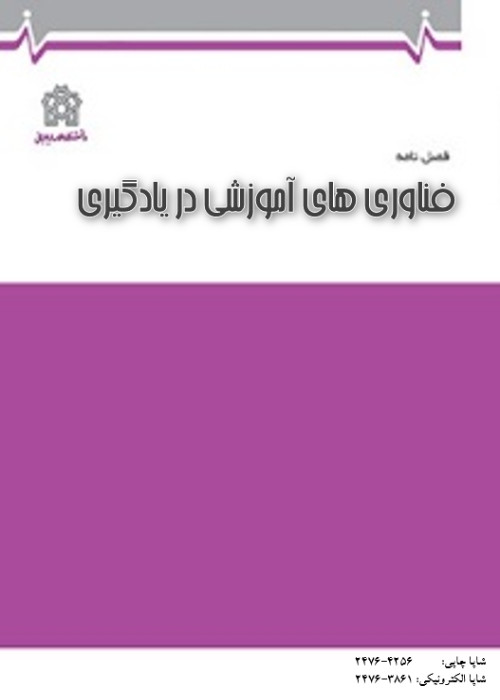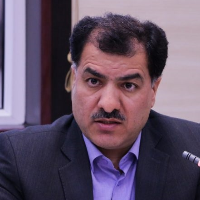Curriculum Revision for Bachelor of Educational Sciences, Educational Technology Minor
Author(s):
Abstract:
This study attempted to revise the curriculum for Bachelor of Educational Sciences, Educational Technology minor. To this end, a qualitative-quantitative method was employed. In the qualitative section, data were collected through Bereday's method. Accordingly, the required information about the Bachelor of Educational Sciences was gathered from credible sources. Then, they were classified and interpreted so as to identify the similarities and differences. In the quantitative section, administered through the Delphi method, a specialized panel of experts was asked to give their opinion on the curriculum. The population included all universities globally holding courses on Bachelor of Educational Sciences. Furthermore, the population covered all professors and experts in the field of Educational Sciences and educational technology at Allameh Tabatabai University. The sample consisted of eight prestigious universities in the US and Canada globally offering Educational Sciences at the Bachelors levels, and Educational Technology at the Masters and Doctorate levels. Moreover, a total of 26 professors and experts in the field of Educational Sciences and Educational Technology were purposively selected from Allameh Tabatabai University. The primary course tables were prepared after analyzing the curricula for Educational Sciences, Educational Technology minor at the Bachelor's level, and Educational Technology at Masters and Doctorate levels in Iran as well as the curricula adopted by other universities offering Educational Sciences at Bachelors level and Educational Technology at Masters and Doctorate levels. The tables were reviewed by a specialized committee for courses in Educational Technology at Allameh Tabatabai University supervised by the leading author. At this stage, 4 basis courses and 9 specialized courses were selected. Then, the syllabus of each course was prepared by two experts. The syllabi were then discussed at several sessions by a specialized committee for the revision of Educational Technology courses at Allameh Tabatabai University and an expert panel on the development and promotion of humanities associated with the Supreme Council of the Cultural Revolution. The corrective recommendations by the specialized committee responsible for reviewing the courses in Educational Technology were applied for 6 months. The syllabi of all courses were revised and matched according to the guidelines from the Iranian Ministry of Science, Research and Technology. The final curriculum was once again discussed and approved by the specialized committee for reviewing Educational Technology at Allameh Tabatabai University as well as by the expert panel on the development and promotion of humanities. Therefore, a total of 13 basic and specialized courses in the field of Educational Technology were finalized in the new curriculum of the Educational Sciences field aiming to integrate several branches of Educational Sciences.
Keywords:
Language:
Persian
Published:
Journal of Technology of Instruction and Learning, Volume:2 Issue: 5, 2016
Pages:
3 to 30
magiran.com/p1634965
دانلود و مطالعه متن این مقاله با یکی از روشهای زیر امکان پذیر است:
اشتراک شخصی
با عضویت و پرداخت آنلاین حق اشتراک یکساله به مبلغ 1,390,000ريال میتوانید 70 عنوان مطلب دانلود کنید!
اشتراک سازمانی
به کتابخانه دانشگاه یا محل کار خود پیشنهاد کنید تا اشتراک سازمانی این پایگاه را برای دسترسی نامحدود همه کاربران به متن مطالب تهیه نمایند!
توجه!
- حق عضویت دریافتی صرف حمایت از نشریات عضو و نگهداری، تکمیل و توسعه مگیران میشود.
- پرداخت حق اشتراک و دانلود مقالات اجازه بازنشر آن در سایر رسانههای چاپی و دیجیتال را به کاربر نمیدهد.
دسترسی سراسری کاربران دانشگاه پیام نور!
اعضای هیئت علمی و دانشجویان دانشگاه پیام نور در سراسر کشور، در صورت ثبت نام با ایمیل دانشگاهی، تا پایان فروردین ماه 1403 به مقالات سایت دسترسی خواهند داشت!
In order to view content subscription is required
Personal subscription
Subscribe magiran.com for 70 € euros via PayPal and download 70 articles during a year.
Organization subscription
Please contact us to subscribe your university or library for unlimited access!



